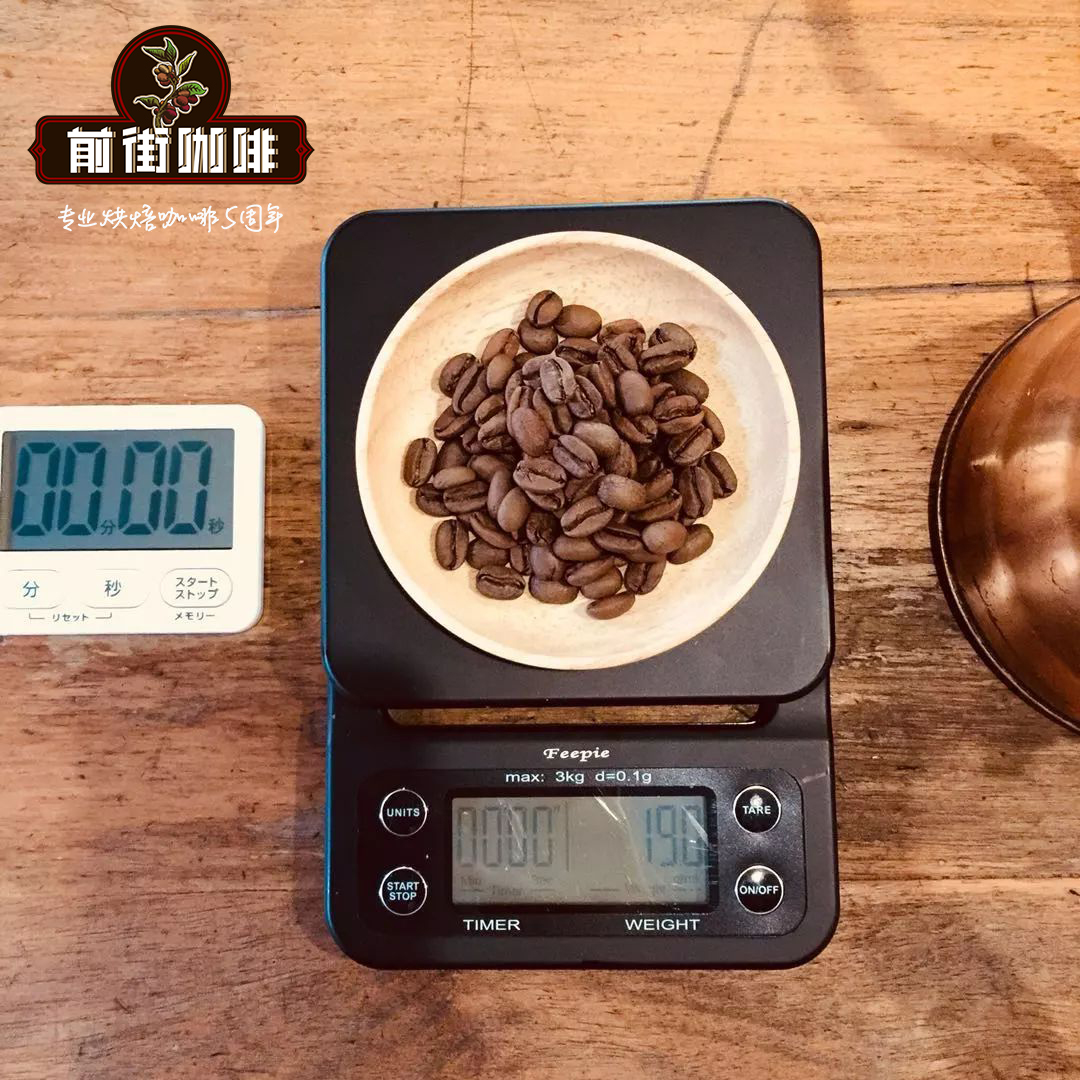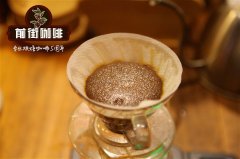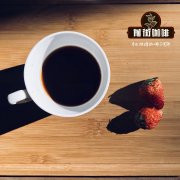How much is Ethiopian coffee beans?

Professional coffee knowledge exchange more coffee bean information please follow the coffee workshop (Wechat official account cafe_style)
In the past two years, Ethiopian coffee represented by Yega Xuefei has been sought after by many coffee lovers, and many coffee lovers have expressed that they are very amazing and unforgettable after drinking high-quality Yega Xuefei.
The word yirgacheffe has also become more familiar to more people, even bigger than sidamo, the big producing area where Yega Xuefei is located.
Sidamo
Sidamo grows in the southernmost Ethiopian plateau between 4600-7200 feet above sea level (Sidamo province), is a famous boutique coffee area in southern Ethiopia, bordering Kenya, in the southeast of Gemma, just south of the capital, usually sweet, but also more popular, Sidamo coffee flavor is very diverse.
Different soil types, microclimates and countless native coffee species, towering mountains, highlands, plateaus, valleys and plains, diverse topography, and the geology of the area belongs to nutrient-rich, well-drained volcanic soil. the depth of the soil is nearly two meters, and the surface soil is dark brown or brown. The biggest advantage of the area is that the soil fertility is maintained through the circulation of organic matter, using the withered leaves of the surrounding trees or the residual roots of the plants as fertilizer. Therefore, the coffee produced in cities and towns has obvious differences and characteristics.
Yega Xuefei is a small town in Ethiopia, 1700-2100 meters above sea level. It is located in the northwest of Sidamo Province. It is one of the highest coffee producing areas in Ethiopia and is synonymous with Ethiopian boutique coffee. Strictly speaking, Yega Xuefei is a by-product area of the Sidamo region of Ethiopia (Sidamo), which is independent because of its special flavor.
Yejia Xuefei, nearly 2,000 meters above sea level, is one of the highest coffee producing areas in the world. It has been a wetland since ancient times. "Yirga" means "settle down" and "Cheffe" means "wetland". Lake Turkana, Lake Abaya and Lake Chamo bring abundant water vapor. The Rift Valley, represented by Misty valley, is foggy all the year round, like spring all the year round, with a gentle breeze, cool and humid, and thousands of coffee trees thrive, giving birth to the unique and unpredictable atmosphere of Yejia Xuefei's unique fragrance of flowers and fruits.
European monastic academics opened up a local coffee growing industry, which was later run by coffee communities or cooperatives in villages around the town. There are no special plantations here, and coffee trees are naturally scattered in the forest and countryside. During the harvest season, the Ethiopian Coffee Trading Company goes to town to buy coffee beans collected by farmers.
In addition to the small town of Yega Xuefei, it also includes three by-product areas such as Wenago, Kochere and Gelena/Abaya around it.
1. Planting system and environment the mountain stream village in the Yega Xuefei producing area is cool and foggy, like spring all the year round, with a gentle breeze in summer, cool but not hot, rain but not damp, and no cold damage in winter, which is the best environment for planting Arabica. There are no large coffee plantations. Coffee farmers mix coffee with other crops, usually under banana trees, to form a unique landscape.
2. The traditional way of solarization in Ethiopia is rough and smelly, which has been criticized by people. In 1959, the South American water washing method was introduced into the Yega Xuefei producing area. Most producing areas generally adopt the water washing treatment, that is, after the coffee fruit is peeled, the pectin layer is removed after fermentation and washing, and then dried. Since 2006, some coffee processing plants in some producing areas have adopted the exquisite elevated shed sun drying method, which invests in high-intensity human labor, which isolates the coffee fruit from contact with the ground and prevents the miscellaneous smell of soil in the process of sunlight. create an unusually clean fruit flavor. After more than two weeks of sun exposure, dark brown coffee fruits are professionally stored, waiting for the whole flavor to ripen. Before sale, the sun-dried cherry pulp and sheepskin are removed, and then the unripe beans and over-fermented beans are removed. Strict control greatly improves the quality of sun-dried beans.
3. Flavor and characteristics
Washed Yega Chuefei: it has a unique lemon flavor, refreshing jasmine flavor, as well as soft fruit acid and citrus flavor, fresh and bright taste.
Sun Yega Chuefei: with charming fruit acidity, clean fermented fruit sweet, elegant fruit wine, sweet finish.
4. The grading system of grade Ethiopian coffee is not based on the number of items, but on the proportion of defective beans in raw beans. Ethiopia launched the ECX boutique coffee trading grading system, and Q-Grader made the following grades through the evaluation of raw beans: washed Yega Xuefei is divided into Grade 1 and Grade 2, Sun Yega Xuefei is divided into Grade 1, Grade 3, Grade 4, Grade 5, and Grade 1 is the highest grade, that is, Yega Xuefei with the lowest defect rate and the best quality. This article is sorted out according to Han Huaizong's "Fine Coffee" and other contents of the Internet.
Name and introduction of Coffee Cooperative in Ethiopia
Sigiga Cooperative (1600-2500 m)
Production area: Gedeo-Kochere Kochel
Number of members: 1862
Land attribute: red brown soil
Certificate: Fair Trade Fair Trade, UTZ Sustainable cultivation, Organic Organic Coffee
Finchewan Cooperative (1450-2000 m)
Production area: Gedeo-Wenago vena fruit
Number of members: 1271
Land attribute: red brown soil
Certificate: Fair Trade Fair Trade, Organic Organic Coffee
Konga Conga Cooperative (1750-2300 m)
Production area: Gedeo- Yega Xuefei
Number of members: 1556
Land attribute: red brown soil
Certificate: Fair Trade Fair Trade, Organic Organic Coffee
Hafursa Cooperative (1750-2300 m)
Production area: Gedeo- Yega Xuefei
Number of members: 1975
Land attribute: red brown soil
Annual output of raw coffee beans: 798000 kg
Average farm size: up to 4 hectares with an annual yield of about 600 kg per hectare
The cooperative has a washing station.
Certificate: Fair Trade Fair Trade, Organic Organic Coffee
Resa Cooperative (1000-1400 m)
Production area: Gedeo-Wenago vena fruit
Number of members: 2719
Land attribute: red brown soil
Two sets of coffee processing equipment are available.
Certificate: Fair Trade Fair Trade, Organic Organic Coffee
Addis Katema Cooperative (1000-1400 m)
Production area: Gedeo-Wenago vena fruit
Number of members: 891
The cooperative has a washing station.
Land attribute: red brown soil
Certificate: Fair Trade Fair Trade, Organic Organic Coffee
Biloya Biloya Cooperative (1600-2500 m)
Production area: Gedeo-Kochere Kochel
Number of members: 1203
Land attribute: red brown soil
Provide two sets of coffee processing equipment
Certificate: Fair Trade Fair Trade, Organic Organic Coffee
Worka Waka Cooperative (1650-2700 m)
Production area: Gedeb
Number of members: 305
Land attribute: red brown soil
Annual output of raw coffee beans: 457000 kg
Average farm size: maximum 4 hectares, annual yield of about 699 kg per hectare
The cooperative has all the processing equipment.
Certificate: Fair Trade Fair Trade, Organic Organic Coffee
Koke Cook Cooperative (1750-2300 m)
Production area: Gedeo- Yega Xuefei
Number of members: 828
Land attribute: red brown soil
A set of processing equipment can be provided
Certificate: Fair Trade Fair Trade, UTZ Sustainable cultivation, Organic Organic Coffee
Hama Cooperative (1600-2500 m)
Production area: Gedeo-Kochere Kochel
Number of members: 1505
Land attribute: red brown soil
A set of processing equipment can be provided
Certificate: Fair Trade Fair Trade, Organic Organic Coffee
Chichu Cooperative (1410-2000 m)
Production area: Gedeo-Dila
Number of members: 1675
Land attribute: red brown soil
Average farm size: up to 4 hectares, with an annual yield of about 591 kg per hectare
A set of processing equipment can be provided
Certificate: Fair Trade Fair Trade, Organic Organic Coffee
Michile Cooperative (1410-2000 m)
Production area: Gedeo-Dila
Number of members: 1206
Land attribute: red brown soil
Average farm size: annual yield per hectare is about 592 kg
A set of processing equipment can be provided
Certificate: Fair Trade Fair Trade, UTZ Sustainable cultivation, Organic Organic Coffee
Hase Haro Cooperative (1450-2000 m)
Production area: Gedeo-Wenago vena fruit
Number of members: 1519
Land attribute: red brown soil
Average farm size: up to 4 hectares, with an annual yield of about 591 kg per hectare
A set of processing equipment can be provided
Certificate: Fair Trade Fair Trade, Organic Organic Coffee
Dumerso Dumeso Cooperative (1750-2300 m)
Production area: Gedeo- Yega Xuefei
Number of members: 246
Land attribute: red brown soil
Two sets of processing equipment can be provided.
Certificate: Fair Trade Fair Trade, Organic Organic Coffee
Tumticha Cooperative (1410-2000 m)
Production area: Gedeo- Yega Xuefei
Number of members: 960
Land attribute: red brown soil
Two sets of processing equipment can be provided.
Certificate: Fair Trade Fair Trade, Organic Organic Coffee
Aramo Cooperative (1750-2300 m) (90 + Clinique producing area)
Production area: Gedeo- Yega Xuefei
Number of members: 2254
Land attribute: red brown soil
Two sets of processing equipment can be provided.
Certificate: Fair Trade Fair Trade, Organic Organic Coffee
Edido Ediot Cooperative (1750-2300 m)
Production area: Gedeo- Yega Xuefei
Number of members: 1044
Land attribute: red brown soil
A set of processing equipment can be provided
Certificate: Fair Trade Fair Trade, Organic Organic Coffee
Adame Cooperative (1000-1400 m)
Production area: Gedeo-Wenago vena fruit
Number of members: 533
Land attribute: red brown soil
A set of processing equipment can be provided
Certificate: Fair Trade Fair Trade, Organic Organic Coffee
Belekara Cooperative (1000-1400 m)
Production area: Gedeo-Wenago vena fruit
Number of members: 685
Land attribute: red brown soil
A set of processing equipment can be provided
Certificate: Fair Trade Fair Trade, Organic Organic Coffee
Adado Adado Cooperative (1200-1700 m)
Production area: Sidamo-Bule
Number of members: 1128
Land attribute: red brown soil
A set of processing equipment can be provided
Certificate: Fair Trade Fair Trade, Organic Organic Coffee
Haru Cooperative (1200-1700 m)
Production area: Gedeo- Yega Xuefei
Number of members: 1187
Land attribute: red brown soil
A set of processing equipment can be provided
Certificate: Fair Trade Fair Trade, Organic Organic Coffee
Ethiopian coffee bean brand recommendation
The Ethiopian coffee beans baked in Qianjie Coffee are fully guaranteed in terms of brand and quality. And more importantly, the performance-to-price ratio is extremely high, a pack of half a pound 227 grams, the price is only about 90 yuan. According to the calculation of 15 grams of powder per cup of coffee, a bag of coffee can make 15 cups of coffee, which costs only about 6 yuan per cup, which is recommended by conscience compared to the price sold in cafes for hundreds of yuan a cup.
Important Notice :
前街咖啡 FrontStreet Coffee has moved to new addredd:
FrontStreet Coffee Address: 315,Donghua East Road,GuangZhou
Tel:020 38364473
- Prev

Ethiopian coffee brands recommend Ethiopian coffee beans how to buy Ethiopian coffee prices
Professional coffee knowledge exchange more coffee bean information please follow the coffee workshop (Wechat official account cafe_style) Ethiopia is known as the birthplace of coffee, it is a local custom, no matter how poor people's homes, they must have a coffee pot and a charcoal stove, why? Because coffee is something that local people think they have to make every day.
- Next

Flavor characteristics of all coffee bean producing areas in Ethiopia how much is a cup of Ethiopian coffee
Professional coffee knowledge exchange more coffee bean information please follow the coffee workshop (Wechat official account cafe_style) Jinma (bulk commercial bean producing area): 1350 to 1850m above sea level | Forest / semi-forest system | Jinma is the capital of Kafa forest or Kafa province. The English spelling is very messy, most of the maps are jimma, but the coffee sacks are spelled into Djimmah. This is Esseobi.
Related
- Does Rose Summer choose Blue, Green or Red? Detailed explanation of Rose Summer Coffee plots and Classification in Panamanian Jade Manor
- What is the difference between the origin, producing area, processing plant, cooperative and manor of coffee beans?
- How fine does the espresso powder fit? how to grind the espresso?
- Sca coffee roasting degree color card coffee roasting degree 8 roasting color values what do you mean?
- The practice of lattes: how to make lattes at home
- Introduction to Indonesian Fine Coffee beans-- Java Coffee producing area of Indonesian Arabica Coffee
- How much will the flavor of light and medium roasted rose summer be expressed? What baking level is rose summer suitable for?
- Introduction to the characteristics of washing, sun-drying or wet-planing coffee commonly used in Mantenin, Indonesia
- Price characteristics of Arabica Coffee Bean Starbucks introduction to Manning Coffee Bean Taste producing area Variety Manor
- What is the authentic Yega flavor? What are the flavor characteristics of the really excellent Yejasuffi coffee beans?

